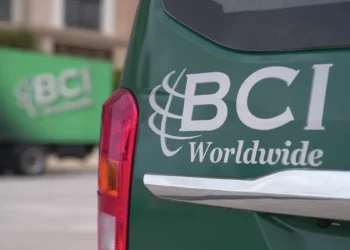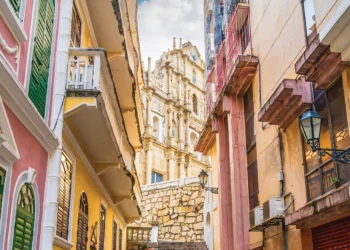What year for Japan’s first IR? It’s a question that continues to divide industry stakeholders, the answer further clouded by the substantial disparity in opinion offered at last month’s Japan Gaming Congress (JgC) in Tokyo.
At the nearer end of the scale, members of the ruling Liberal Democratic Party remain hopeful of the nation’s first integrated resort opening its doors as early as 2022 or 2023 – a dream that has been boosted in the weeks since JgC by news that the current Diet session will likely be extended into early July to ensure passage of the long-awaited IR Implementation Bill.
Speaking in Tokyo in May, Deputy Chief Cabinet Secretary of the LDP, Yasutoshi Nishimura, said, “As the Central Government, we recognize the IR bill has now been submitted, so we have just requested the Diet to debate about the bill. All party groups have a representative to discuss the IR situation, so we hope the debate can proceed smoothly.
“After the bill is passed we would like to build the government’s policy and based on this policy or regulation any prefecture, candidate city and IR operator can start to apply and then if everything proceeds smoothly I am hoping to have an IR here in Japan in the early 2020s.”
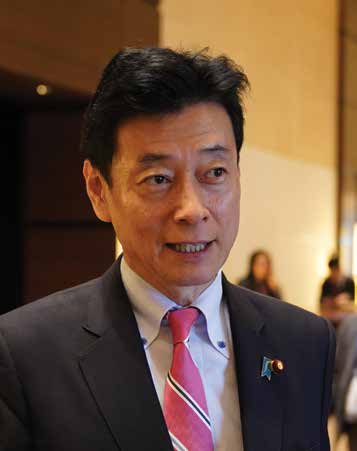
But not all expect the process to run so smoothly. Inside Asian Gaming spoke to a number of Japanese politicians involved in the IR process during JgC, with one of them, independent MP Mito Kakizawa, suggesting that casino gaming won’t become a reality in Japan until at least 2029 or 2030.
Kakizawa, a member of the House of Representatives and former member of The Party of Hope, said the process of establishing Japan’s Casino Control Commission, initiating RFPs, selecting operators and approving design plans would likely take much longer than has been publicly iterated. In particular, he predicted that the three winning operator bids to be granted a Japan casino license would not be determined until 2024 “at the earliest.”
Putting such extremes aside however, the safe money seems to be on Japan’s first IR opening around 2025 or 2026.
This is not only the opinion of the majority of politicians we spoke to – including the IR leader of the LDP’s coalition partner Komeito, Kiyohiko Toyama – but also multiple industry analysts and consultants.
Melco Resorts Chairman and CEO Lawrence Ho offers a similar view, telling CNBC that, “Assuming the whole legislation process goes very smoothly without any hiccups I think the earliest the bidding can even take place is probably 2020 or 2021, and if you build an integrated resort with Japan’s dedication to quality and their building methods in terms of perfection, it’s probably going to [take a while].
“In Macau we built these great buildings in three-and-a-half to four years but I think in Japan it’s probably going to be five or fiveand- a-half years, so the soonest that an integrated resort will open in Japan I think would be in 2025.”
In fact, by breaking down the implementation process into individual segments, the year 2025 emerges as the most likely scenario assuming no further unexpected delays along the way.
The process once the IR Implementation Bill is passed will be as follows:
FORMATION OF CASINO CONTROL COMMISSION
One of the most significant steps in pushing Japan’s IR industry forward will be the formation of the Casino Control Commission (CCC) – the government watchdog charged with regulating and supervising casino operations as well as monitoring organized crime and money laundering threats. The CCC would comprise around 100 officials under the Cabinet Office and its first task would be to set out precise IR regulations.
According to gaming consultancy firm Global Market Advisors, formation of the CCC and associated regulations should be complete sometime in 1Q19 although others predict a little longer. Toru Mihara, an advisor to the government during development of its IR Implementation Bill, stated earlier this year that just putting the CCC together will take a full 12 months.
INITIATION OF RFP PROCESS
Financial services firm Morgan Stanley has this pegged for mid-2019 and running for about a year as operators and candidate cities start the bidding process in earnest.
GMA Partner Brendan D Bussmann says that “the RFP for the three potential locations and selection of operators will be fierce considering the number and caliber of operators that will seek a license.”
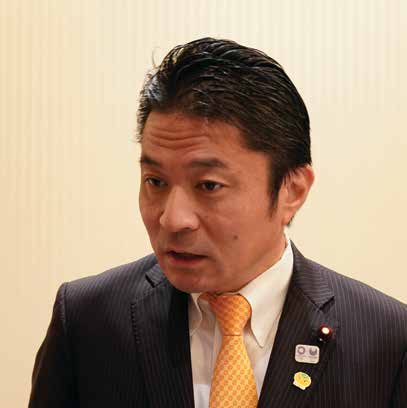
However, he notes that there may still be an opportunity for operators to collaborate on a larger-scale development such as the Osaka Strip concept his company first touted in 2017.
“If allowed under the regulatory environment, the level of investment and tourism draw would increase significantly if multiple operators would come together on a single large site such as Yumeshima Island in Osaka to form an Osaka Strip, or in the Tokyo or Yokohama area,” he said.
According to Union Gaming’s Grant Govertsen, it is the leadup to this RFP process that poses the greatest risk as rules and expectations regarding foreign ownership levels become clearer.
“Even though there is more clarity on the regulatory environment in Japan,” Govertsen said during a panel session at G2E Asia in May, “the ownership question will continue for quite some time before we actually get any clarity or even marriages between the international and Japanese partners, so it’s going to be in waiting mode for a while.”
LOCATION AND OPERATORS SELECTED
Consensus suggests that Japan’s first three locations and IR operators will be named sometime between 1Q20 and 2Q20.
The most significant takeaway from the recent JgC in this regard was the push for at least one Japan casino license to be granted to a regional location with Hokkaido, Nagasaki and Wakayama among the main contenders.
Member of the House of Councillors for the LDP, Seiko Hashimoto – a former speed skater and track cyclist who represented Japan in seven Olympics – said at JgC that “having a regional casino is very important.”
“I grew up in Hokkaido and I know what it has to offer in terms of the ice and the snow, the natural attractions it has throughout the year,” she said. “I also understand the benefits an IR can bring to the local economy. An IR is the perfect way to invigorate the economy of the regional centers.”
Akihiko Sasaki, the Vice Mayor of Tomakomai in Hokkaido, said that IRs provided a unique opportunity to address the issues of an ageing population and declining birth rate in Japan’s regional centers using private sector funding.
“The low birth rate and ageing process has led to a hollowing out of the downtown area, making it difficult to collect taxes,” Sasaki said, adding that, “Despite the declining population, we want to reverse the trend of a declining economy.”
A study released by the Hokkaido Prefecture Government on the eve of JgC found that Tomakomai City would attract the most visitors of any Hokkaido location with estimates of 8.7 million annual visitors and annual IR revenue of up to ¥156 billion (US$1.4 billion) – around double that of its nearest competitor.
In Wakayama Prefecture, located in Japan’s south, estimates have the number of annual visitors pegged at four million per year and revenue of ¥140 billion, with a location in Marina City already chosen as the preferred site.
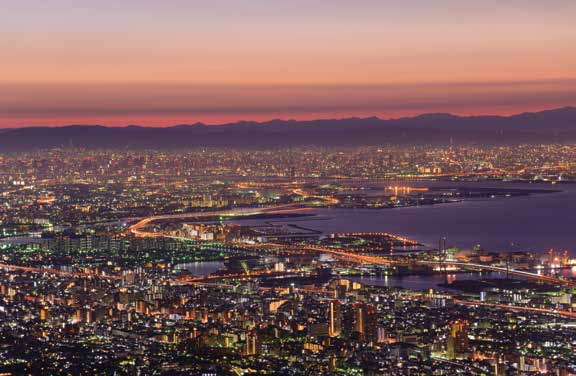
DESIGN AND APPROVAL PROCESS
To the victors go the spoils. Come late 2Q20 to 3Q20, the successful candidates will start finalizing their IR designs and submitting them for approval.
As per Morgan Stanley’s timeline, it will take around two years for operators to prepare to break ground on their chosen site and will require certification of their respective IR development plans by the CCC and the signing of an implementation agreement.
Japan’s IR candidates have promised distinctly Japanese-themed IRs that will reflect the community in which they are located.
Describing his company’s partnership with Macau’s Galaxy Entertainment Group, Jean-Louis Masurel of Monaco’s Société des Bains de Mer (SBM) said, “SBM promises the best of Europe through its international recognition, iconic brands, 155-year history and heritage. Galaxy promises the best of Asia through its unique Asian-inspired resort and hospitality experiences.
“Together in collaboration with local partners we will add the best of Japan, capturing the vibrancy, vitality and uniqueness of Japan through innovative design and architecture, arts and culture, events and entertainment and technological innovation to ensure the IR is unique, authentic and unlike any other in the world.”
President of Wynn Development, Chris Gordon, told JgC that Wynn Resorts would create a “new Japanese district” incorporating “multiple buildings, multiple hotels and a space to wander around in the open,” but added, “If someone travels to Japan they are here to see Japan. We would still clearly have themes of our company but it would be quintessentially Japanese. We would also make the non-gaming aspects part of the fabric of the resort.”
GROUND BREAKING
If all of the above goes to plan, GMA says ground can be broken on Japan’s first IRs as early as 1Q22, leaving the final opening date down to the pace of construction.
“GMA believes that the earliest that large IRs will open will be late 2024 or early 2025,” Bussmann tells IAG. “While there is one regional site with an existing infrastructure that could open earlier, it is likely that between the regulatory formation, RFP Process, as well as the design, environmental approvals and overall construction that Japanese IRs will not open until the mid-2020s.”




























